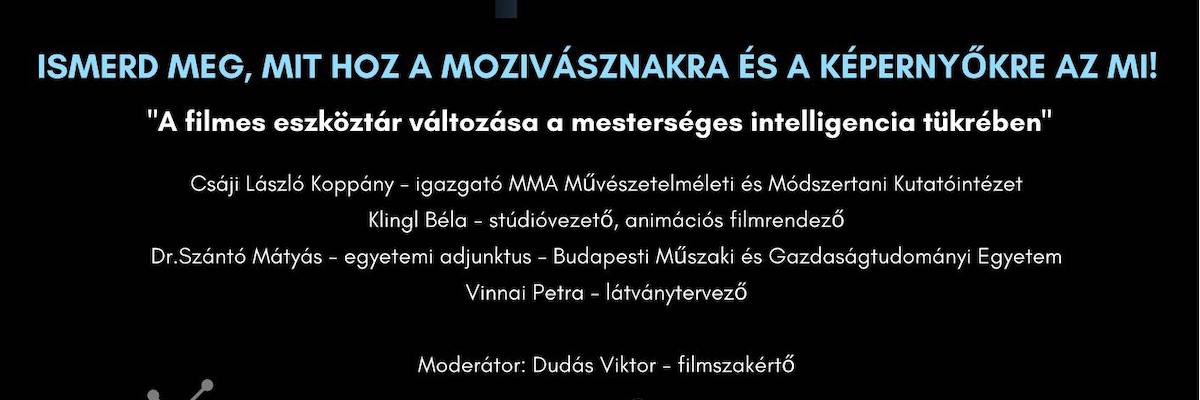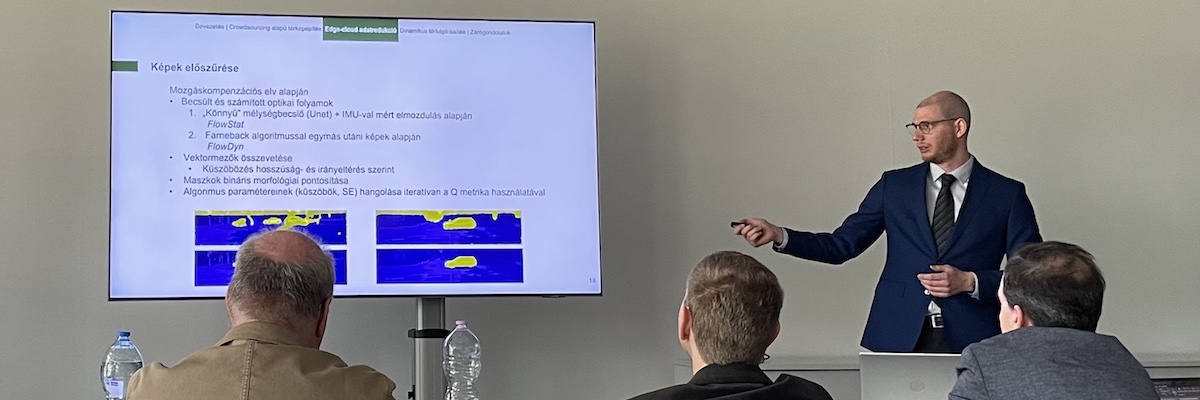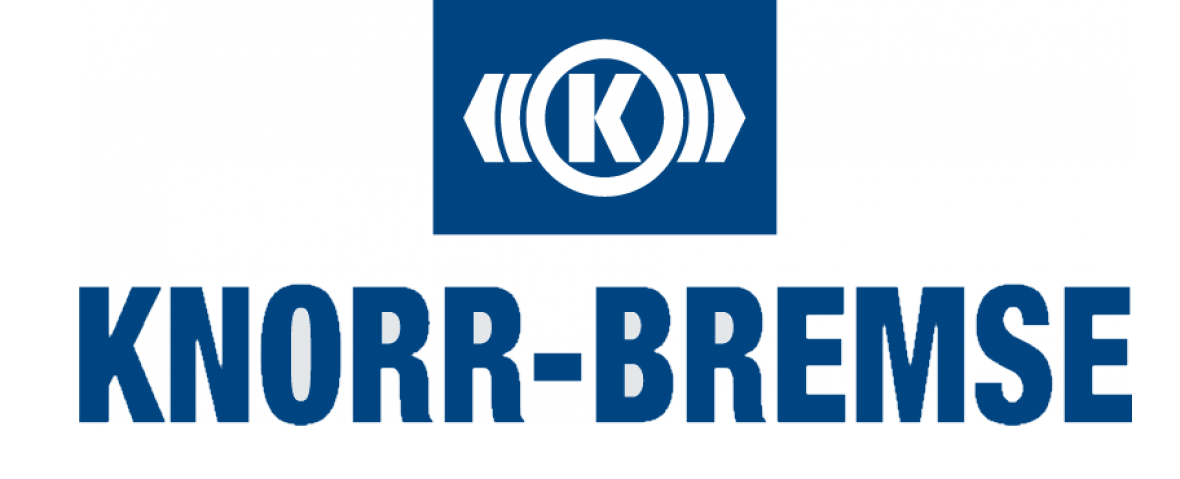Computer Vision and Machine Learning Research Group
We research and develop in the forefront of artificial intelligence and computer vision
Our research group is located at the Department of Control Engineering and Information Technology of the Budapest University of Technology and Economics. Our mission is to develop intelligent vision systems and image processing methods, as well as to research applications of these solutions.
Intelligent Vision Systems
Vision is one of the most fundamental and useful senses of human beings, which we use to perform thousands of tasks every day. However, we take for granted the ability to interpret images, even though implementing these abilities in computers is an extremely challenging task. The goal of our research group is to realize the ability to interpret images and videos - and the almost infinite range of applications that come with it - in computers at the highest possible quality. To achieve this goal, our group conducts significant research activities, while paying special attention to sharing the acquired knowledge through educational, mentoring, and consultancy activities.
Professional Work
Research Areas
In our research group, we conduct significant research in the field of computer vision, and then transfer the acquired knowledge to a wide range of different application areas. These include intelligent robots, autonomous vehicles, geographic information systems, smart cities, and simulation-based learning systems. Our group is a part of several successful research projects and currently a member of the National Laboratory of Artificial Intelligence (MILAB).
High-quality and up-to-date maps are one of the fundamental needs in the modern information world. However, their accurate production and maintenance are extremely resource-intensive tasks. The goal of the community mapping project is to leverage the cheap onboard cameras that more and more drivers voluntarily place in their cars. Although the quality of the footage captured by these cameras is low, their large number makes them an excellent source for a mapping service.
Although deep learning-based visual systems have achieved remarkable results in recent years, the trained artificial intelligence has not yet reached the required level of robustness. The goal of our research project is to create visual systems that are capable of detecting and eliminating various disturbing environmental factors (e.g. lighting, smoke, fog, occlusion), thereby increasing the reliability of the decision-making system. In addition, we pay special attention to ensure that these systems have relatively low resource requirements, making them suitable for use in embedded systems.
Autonomous robots and vehicles are one of the most relevant applications of computer vision. Our research aims to create simulation techniques and environments in which autonomous agents can be effectively trained. Additionally, we pay special attention to successfully adapting the artificial intelligence trained in simulated environments to real-world situations (Sim2Real).
One of the outstanding socially useful applications of computer vision is the various diagnostic solutions that greatly assist doctors in making critical decisions. Our research in this field included creating a state-of-the-art quality segmentation system capable of identifying blood vessels in photos of the retina, which can aid in the diagnosis of numerous diseases such as diabetes.
One of the important applications of computer vision is providing high-quality processed data for smart cities, smart administration, and geographic information systems. Tasks to be performed include real-time traffic counting, recognition of traffic situations, or detection of various waste on images taken by satellites or drones.
The solution of localization and mapping tasks of autonomous agents plays an outstanding role among transportation automation tasks. A highlighted research topic of our group is the examination of odometry and mapping problems based solely on visual information. To this end, we conduct integration experiments in researching and developing numerous solutions.
Education for BME Students
Our laboratory is represented in the main programs of the Faculty of Electrical Engineering and Informatics through teaching courses on Image Processing and Deep Learning topics. In addition to these, we consider it important to nurture the talents of our students, so we offer numerous topics for Project Laboratory and Thesis Design, and our students regularly achieve successes at the faculty and national TDK conferences.
Our group warmly welcomes all students interested in computer vision and artificial intelligence from any program at the Faculty of Electrical Engineering and Informatics, as well as from the Autonomous Vehicle Design and Mechatronics programs, for self-study, thesis, or diploma topics. Students can apply with their own topic ideas or choose from the pre-announced topics related to the aforementioned subjects.
Our group is responsible for teaching the following courses:
- Image Processing (BSc in Computer Science)
- Computer Vision Systems (MSc in Electrical Engineering and in Autonomous Vehicle Engineering)
- Deep Learning in Visual Computing (MSc in Computer Science)
- Machine Vision (MSc in Mechatronics)
- Industrial Image Processing and Display (BSc in Electrical Engineering)
One of the main goals of our research group is to nurture talented students, and therefore, there is an opportunity to prepare a scientific student research thesis (TDK) for high-quality work. In the case of successful TDK works, there is also the possibility of presenting the work at an international conference.
International and Industrial Partners
Our group's mission includes both promoting our scientific activity internationally and collaborating with domestic industrial players. To facilitate the latter, we consult on numerous company student projects and participate in industrial collaborations. Additionally, we also undertake consultancy work.
Projects
Our laboratory is involved in several research and industrial cooperation projects, some of which are currently ongoing, while others have been successfully completed.
Artificial Intelligence National Laboratory
The National Laboratory of Artificial Intelligence (MILAB) is a national-level research collaboration initiated by the Ministry of Innovation and Technology, which started in 2020 and has 11 consortium members. Within the laboratory, our research group is responsible for the research tasks of the Machine Vision sub-project within BME.
IoTAC
The Security By Design IoT Development and Certificate Framework with Front-end Access Control (IoTAC) is a Horizon 2020 research and development collaboration funded by the European Union. Our team is part of the IIT department and joined the project as part of a consortium of 13 partners from 7 countries under the auspices of BME. Our team is working with Tecnalia to develop a sub-project aimed at developing interconnected and autonomous vehicles.
Professional Intelligence in the Automotive Industry
The Professional Intelligence in the Automotive Industry (PIA) project is a collaborative effort to support research activities between the Deep Machine Learning Competence Center at Continental's Budapest headquarters and the Budapest University of Technology and Economics. As part of the project, our team provides professional and business mentoring for students.
News

Roundtable discussion at the ATAFF film festival
Mátyás Szántó, PhD took part in a roundtable discussion about AI.

Successful doctorate defence
Mátyás Szántó successfully defended his doctoral dissertation.

36th OTDK first prize
Blanka Bencsik won first prize at the Computer Science Section of the 36th National Scientific Students' Associations Conference.

XX. Simonyi Conference
Richárd György Bogár held a presentation at the XX. Simonyi Conference.
Our Members
Currently there are four full time researchers, three Phd students and numerous MSc and BSc students engaged in collaborative research within our group.
Students

Sándor Kobál
MSc Student

Zhu Morui
MSc Student

Erik Szász
BSc Hallgató
Former researchers

Dr. László Vajta, PhD
Associate Professor

Dr. István Loványi, PhD
Associate Professor

Dr. Ferenc Vajda, PhD
Associate Professor
Former Students
Our workshop is located at the Department of Control Engineering and Information Technology (IIT) at the Budapest University of Technology and Economics (BME).
The department teaches, researches, and develops in the fields of control engineering, robotics, software development, software quality, digital technology, computer systems, computer graphics, machine vision, image processing, physiological regulation, and medical informatics.























